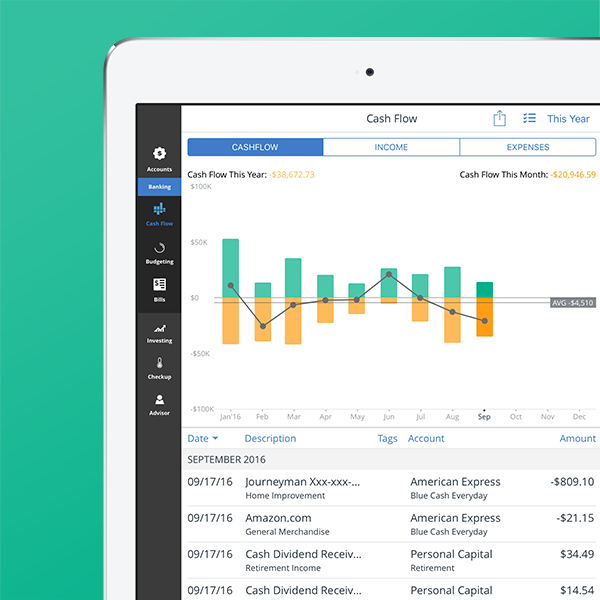Today’ guest post is from Dan Kent. Dan is a writer and co founder of Stocktrades.ca. A DIY investor for 7 years now, Dan has a combination of dividend, growth and real estate investments in to his portfolio and is looking to continually grow his net worth. You can check his website out at stocktrades.ca or follow him on Twitter at @Stocktrades_CA.
We all clock into the 9-5 for a few reasons. One, it keeps us afloat. It pays our mortgage, buys our beer, feeds us and our families. But ultimately, you want your job to pay you enough that one day you can call it quits.
I’m sure you’ve seen the commercials lately about how much mutual fund managers and big banks can eat into your retirement income. I haven’t crunched the numbers exactly, and I’m sure they are slightly exaggerated on these advertisements. But one thing I can tell you is that sticking with your bank or financial advisor over the long haul will cost you money, and often lots.
Investing Yourself is Intimidating
Now, you probably realize you’re getting charged erroneous fees by whoever manages your money. You’ve probably taken this right hook to the chin every year as you watch some of your portfolio earnings vanish into thin air. In the end, I decided to make the switch to a self-directed investment when I realized a bank I will not name was taking almost thirty percent of my portfolio earnings on a $10,000 RRSP I had opened.
But, the problem most people are presented with is the difficulty of managing your own investments. The stock market is one hell of an intimidating endeavor. It requires a large amount of experience, monitoring, and knowledge to be successful. I’ve been doing it for nearly 8 years now and I still have so much to learn, it makes my head spin. That being said, with an extreme amount of dedication and passion for anything finance related, I have become somewhat of a successful stock picker.
But what if there is a way to reduce or even eliminate the amount of fees you are paying for someone to manage your investments that don’t require you to pick individual stocks? Well, it’s your lucky day, because there is. And it’s taking the investing world by storm.
Say Hello to the Exchange Traded Fund, or ETF
Now, ETFs have been around a long time. In fact, they’ve existed since the early 90s. Unfortunately though, no one was taking advantage of them back then.
If you don’t know what an ETF is, I’ll explain it to you in the form of potato chips. You’re heading to Wal-Mart looking to buy some sort of snack for a party you’re about to have. You know Doritos are a go-to brand that most everyone loves. But what about those few people who don’t like them? You want to gain maximum potential popularity exposure here. Pleasing everyone is at the top of your list. Instead, you find a variety pack that contains 10 different types of chips, including Dorito’s, all in one box. If the Dorito’s are a rare miss with the crowd, you’ve got 9 other types of chips that surely will suffice.
If you haven’t already probably figured this out, the Doritos are our hypothetical stock. The variety pack, is our potato chip equivalent to an ETF.
Why are ETFs So Good?
Let’s talk money before we dig into why ETFs are an excellent investment option for a beginner. It’s all in the fees. The average mutual fund MER (Management Expense Ratio) in Canada according to Morningstar is 2.35%. The average ETF MER on the other hand, is 0.44%. That is a massive difference, especially when you think of a larger portfolio. People are catching on to this and are slowly migrating out of mutual funds and into either full-blown stock picking, or index fund/exchange traded fund investing.
Secondly, ETFs take all the difficulty out of attempting to be some kind of glorious stock picker. Say you have an inkling the price of crude oil is going to go up. Just as a hypothetical example, let’s say Investor A decides to go the individual stock route and purchases some shares of Exxon Mobil. You, Investor B decided you don’t have time to learn the intricacies of making individual stock picks so you decide to purchase the BMO Junior Oil Index ETF.
The price of crude increases and Oil companies are rolling. Except Exxon. Say they struggle to meet targeted earnings and as a result their share price stays around the level Investor A purchased it at, or even drops a little.
Meanwhile, you reap the benefits of owning an Oil ETF, which contains a group of companies who rely on crude to push profits. You celebrate as the industry and the value of the ETF increases as a whole.
Still Don’t Want to Go That Far? Try a Robo-Advisor
Some people may not have the time nor knowledge to go about picking their own ETFs. This is completely fine, and companies do exist to help you out. Although the fees will be higher (although still considerably lower than a mutual fund), investing “robots” called Robo-advisors automatically invest and adjust your portfolio based on your investment needs and risk tolerance.
In my opinion, the best Robo-advisor without question is Wealthsimple. I’m not going to dig into too many details on Wealthsimple, as the point of this article is just to get you thinking about it. That being said, if you are interested in learning more about the Robo-advisor giant that is taking Canada and now the USA by storm, feel free to read this recent Wealthsimple review I just published.
In the End, the Choice is Ultimately Up toYou
If you’re concerned about how much of your money is being taken from you by your bank or advisor, the first step is to sit down and analyze what exactly you are paying. There are some mutual funds and advisors out there who have the ability to crush the markets. So much so that it may still be worth it for you to stick with them, as the high fees are justified with the returns.
But in the large majority of cases, these services are overpriced and are only costing you money. All in all, if you simply don’t have time to do any sort of research or planning, stick with your advisor or head to a Robo-advisor. Do some more research or talk to your advisor about ETFs and how they can help your returns. But also keep in mind that the fees paid to a mutual fund are not as detrimental to a new investor as their own actions are to themselves sometimes. A lack of knowledge can bury a person trying to navigate the stock market. A little piece of the pie taken away every year is better than the whole thing being squashed.







Leave a Reply